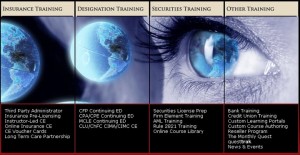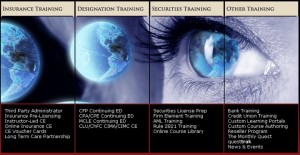It’s great when you are confident in safety of your money in general, and in your insurance company’s reliability in particular.
 Unfortunately, the credit crisis affected virtually every sphere of life, and in times of the financial turmoil, like it is going now, many began worrying about its consequences for insurance and wonder to what extent the insurance industry was affected.
Unfortunately, the credit crisis affected virtually every sphere of life, and in times of the financial turmoil, like it is going now, many began worrying about its consequences for insurance and wonder to what extent the insurance industry was affected.
What are the risks that this financial crisis might pose to the insurance industry? What if my insurance provider won’t be able to pay for the claim? Should I switch the insurer, or even quit my insurance cover? All these questions are very urgent for many people today.

First of all, you should know that there is no reason to worry if you are satisfied with your insurance company and the way they work. Have they paid for the claims in time? Were there any problems with their quick and adequate respond to your claim? Make sure that you are aware of your insurer’s latest rates, and if they are ok for you, you can rest assured (whatever it meant).
Additionally, there are independent sites where you can learn practically every insurance company’s rating. The rating shows the company’s stability and reliability from an independent point of view, whether it will be able to meet its obligations in future, i.e. to pay for claims. According to the rating you can always decide if you should “quit†or switch your insurer.
Some more good news for you:

– an insurer’s activity is strictly regulated, and in most cases an insurance company is not involved in those risks which unregulated industries are vulnerable to; besides, the industry is now under tight control because of the banking crisis, which doubles reliability;
– in case an insurer is in bad financial condition, it will get aid from the state insuranceregulators, for the purpose of anticipating its bankruptcy, and the state which the insurer belongs to will take measures to save the company; moreover, it is a strict obligatory rule for insurance companies to pay into guaranty funds; so, a policyholder has nothing to worry about anyway, as he/she is going to get the money even if the insurer is insolvent;
– in some states there is a so called pre-assessment system,
– a kind of a pool for insurers to annually contribute money to, so as to secure future claim- payments.
As you may see, the sphere of insurance is rather protected from the threats of the world-wide financial crisis. Anyway, if you still have doubts, just shop around for a good and reliable insurance company, be careful and stay tuned.
About Insure4USA
Insure4USA has been offering free auto insurance, health insurance, home insurance andlife insurance quotes online since 2008.
Via EPR Network
More Financial press releases









 The Credit Confidence Survey by PricewaterhouseCoopers suggested that over one in four people (27%) are worried about their future ability to repay debts, while 20% of UK credit customers are worried about the future availability of credit – suggesting a reliance on credit to pay off existing debts.
The Credit Confidence Survey by PricewaterhouseCoopers suggested that over one in four people (27%) are worried about their future ability to repay debts, while 20% of UK credit customers are worried about the future availability of credit – suggesting a reliance on credit to pay off existing debts.











